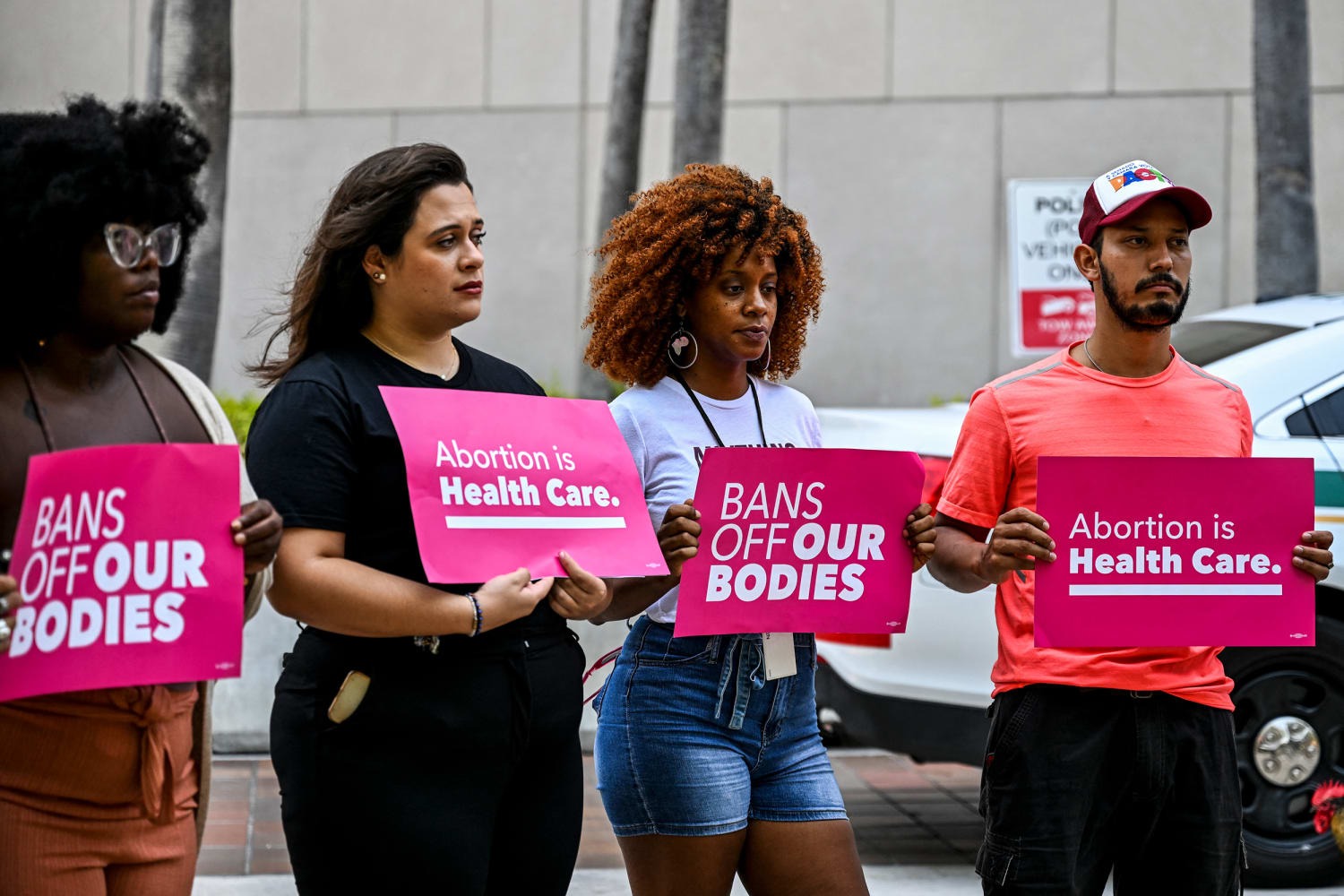Florida’s controversial ban on most abortions after six weeks of pregnancy has gone into effect, sparking concerns among doctors and reproductive rights advocates. Vice President Kamala Harris, during a visit to Jacksonville, attributed the ban to former President Donald Trump’s influence on the Supreme Court.
Dr. Leah Roberts, a fertility specialist, criticized the legislation, stating that it is written by individuals lacking medical expertise and poses risks to women’s health. The ban, which allows exceptions only in cases of saving a woman’s life, rape, and incest, has been condemned for its restrictive nature and potential harm to women’s health.

The ban’s impact extends beyond physical health, causing psychological trauma for women forced to carry nonviable pregnancies. The legislation has prompted discussions about the role of government in women’s healthcare decisions and the need to protect reproductive rights.
The Biden administration has condemned the ban, attributing its enactment to Trump’s policies. The ban’s implementation has led to increased costs and logistical challenges for women seeking abortions, with some forced to travel out of state for the procedure.

Efforts to combat the ban include proposed constitutional amendments to enshrine abortion rights in Florida’s constitution. Democrats hope to mobilize young voters to support these initiatives and challenge Republican dominance in the state.
Despite the ban, Democratic leaders are urging women to seek help from abortion funds and resources and discourage risky alternatives. The ongoing debate underscores the complicated and contentious nature of reproductive rights in contemporary American politics.


